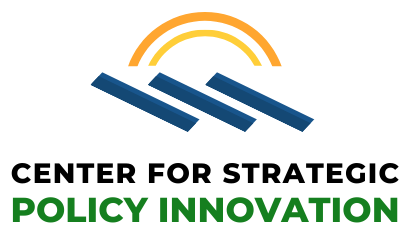
Lansing Pilot Program
Creating In-house Local Government Renewable Energy and Resiliency Capabilities
As part of its Clean Growth Incubator Platform, the Center is spearheading the Lansing Pilot Program, a research and training program designed to help cities, counties and community leaders create in-house renewable energy and energy resiliency modeling capabilities. This pilot program, which is being conducted with the support, cooperation and assistance of DOEs National Renewable Energy Laboratory (NREL), Michigan State University faculty members, the Arizona State University Laboratory for Energy And Power Solutions (LEAPS) and city officials from the City of Lansing, Michigan, is a hands-on case study of the siting, feasibility, financial, powering and energy storage/resiliency modeling of a proposed ground mount solar PV/microgrid facility in the City of Lansing, Michigan.
This Pilot Program involves the deployment of the renewable energy/resiliency modeling capabilities of NRELs publicly available Renewable Energy Optimization Tool (REopt) and its System Advisor Model (SAM), at this Lansing, Michigan site. The goal of this effort is to develop Best Practices protocols to guide engineering, public works, planning departments and community NGOs when using the publicly available SAM and REopt renewable energy/resiliency modeling tools for the visioning and buildout of renewable energy and energy resiliency projects within their communities.
Pilot Program Training Webinars
The training portion of this Pilot Program is being conducted through a three-part recorded webinar series. The first two webinar sessions (which took place on March 25 and May 12, 2021) were designed to introduce participants to top NREL experts, together with preliminary information regarding NRELs SAM and REopt modeling tools, and to then provide a comparison (conducted by the ASU LEAPS experts) of those NREL tools with private-sector fee (or subscription)-based renewable energy/resiliency modeling tools, like Xendee (and Homer). For the third webinar, which will take place sometime in the Fall of 2021, the NREL and LEAPS teams will be joined by research team members from Michigan State University - who are conducting the actual hands-on deployment of the SAM and REopt modeling tools at the subject Lansing Michigan site, together with officials from the City of Lansing and its Public Service Department. The third webinar will provide a discussion of the use of REopt and SAM in the sizing, design and modeling of the Lansing project.
A description of the first two webinar training sessions, as well as the recordings and presentation slides, are free to access below. A further description of the upcoming third webinar is also included.
Webinar #1
Hosted on March 25, the first webinar featured a panel of experts from NREL, including Nate Blair, Kate Anderson, and Xiang Li. These speakers provided an overview of both SAM and REopt, as well as Open DSS, for those who are new to these publicly available (and free) tools, as well as an in-depth review of how these tools can be applied to site identification, feasibility assessments, financial modeling, and system design. To access a full recording and presentation slides, please visit the link below:
Webinar #2
On May 12, the Center for Strategic Policy Innovation hosted the second webinar in this three-part pilot program/training series featuring presentations from the Laboratory for Energy And Power Solutions (LEAPS) team at Arizona State University, partners with the Center on the Clean Growth Incubator training Platform, that focused on private-sector fee (or subscription)-based renewable energy/resiliency modeling tools, with a special emphasis on the XENDEE program (and Homer). This second webinar session included a brief comparison of such private sector modeling tools with NREL’s publicly available (and free) SAM and REopt tools.
Webinar #3
On February 16, 2023, the Center of Strategic Policy hosted the “NREL Modeling Tools Case Study - Solar PV/Microgrid Pilot Site” webinar, the final webinar in a three-part series. The webinar focused on a pilot project in Lansing, MI, that is deploying the solar energy/resiliency modeling capabilities of NREL’s publicly available Renewable Energy Optimization Tool (REopt) and System Advisor Model (SAM). Spearheaded by the Center, the Lansing Pilot is being conducted with the support, cooperation, and assistance of DOEs National Renewable Energy Laboratory (NREL), past and present Michigan State University faculty members, Arizona State University’s Laboratory for Energy And Power Solutions (LEAPS) – who performed the solar/battery storage/microgrid modeling at the site using the NREL modeling tools – and city officials from the City of Lansing, Michigan. Experts involved in the pilot project shared best practices and lessons learned from this modeling effort.

